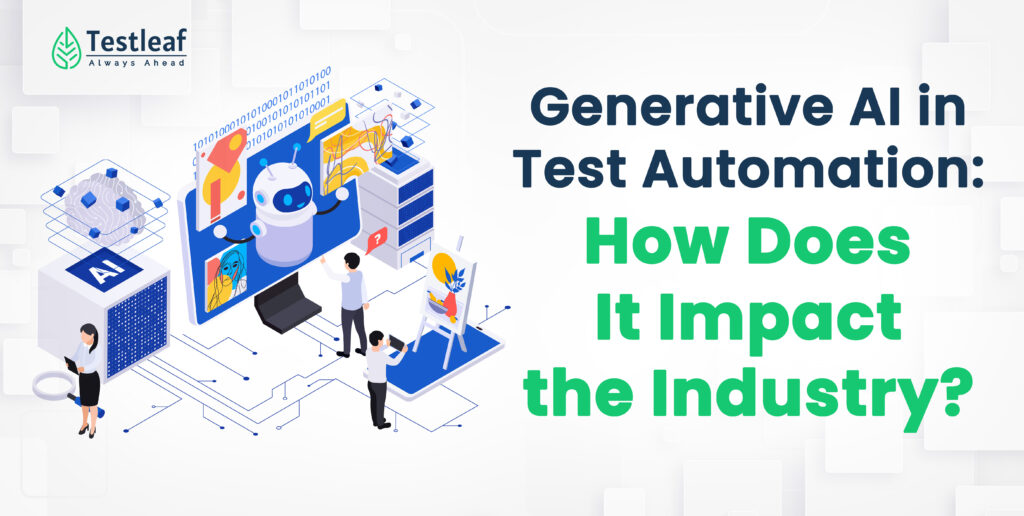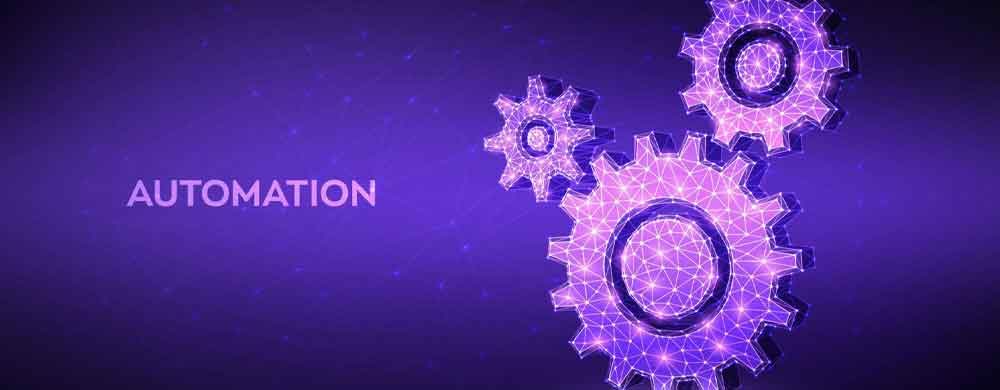The software development and testing landscape is constantly evolving, and generative artificial intelligence (Gen AI) has emerged as a transformative force.
By automating repetitive tasks, enhancing accuracy, and offering innovative solutions to complex challenges, Gen AI is reshaping the way organizations approach software testing.
In this article, we will explore the impact of generative AI on test automation, its benefits, challenges, and future potential.
What is Generative AI in Test Automation?
Generative AI refers to a subset of artificial intelligence capable of generating new content, predictions, or solutions based on the data it has been trained on.
In the context of test automation, Gen AI can create test cases, scripts, and test data, identify patterns, and even predict potential issues in the software lifecycle. It leverages technologies such as natural language processing (NLP), machine learning (ML), and deep learning to make intelligent, automated decisions.
For example, Gen AI tools can analyze user stories and automatically generate relevant test scenarios or analyze past test results to identify patterns in failures.
The Impact of Gen AI on Test Automation
Generative AI has brought significant changes to test automation, transforming it into a smarter, faster, and more efficient process. Here are the key ways Gen AI impacts the field:
1. Accelerated Test Case Generation
Manual test case creation is time-consuming and prone to human error. Generative AI automates this process by analyzing application requirements, user stories, and existing test cases. It generates new test cases that align with real-world scenarios and edge cases.
- Example: Tools like ChatGPT or custom-built Gen AI systems can interpret functional requirements and generate comprehensive test cases in seconds, reducing the workload for QA teams.
2. Intelligent Test Data Creation
Gen AI can produce synthetic test data that mirrors real-world conditions, ensuring comprehensive testing without violating privacy regulations. It can generate data with diverse formats, conditions, and edge cases.
- Benefit: This helps simulate complex user interactions and reduces the dependency on actual production data, which can be sensitive or incomplete.
3. Enhanced Defect Prediction
By analyzing historical defect patterns, generative AI predicts where potential issues might arise in the software. This predictive capability enables testers to focus on high-risk areas, improving efficiency.
- Impact: Defects can be addressed earlier in the development lifecycle, reducing the cost and time required for fixes.
4. Automated Script Maintenance
Test automation scripts often break when there are changes in the application under test. Gen AI automates the maintenance of these scripts by identifying changes in the application and adapting scripts accordingly.
- Advantage: This reduces downtime and ensures continuous testing, especially in Agile and DevOps environments.
5. Smarter Test Execution
Generative AI optimizes test execution by determining which tests to run based on changes made to the code. It prioritizes test cases that are likely to uncover defects, reducing execution time.
- Result: Faster feedback loops for developers, enabling quicker iterations and releases.
6. Natural Language Processing for Communication
Using NLP, Gen AI enables non-technical stakeholders to interact with testing tools. It can convert plain English instructions into executable test scripts, making automation accessible to everyone.
- Example: A project manager can describe a test scenario in simple language, and the AI will generate the corresponding test case.
Benefits of Gen AI in Test Automation
- Increased Efficiency: Automating repetitive and time-consuming tasks enables teams to focus on higher-value activities.
- Cost Savings: Early defect detection and reduced manual efforts lower the overall cost of quality assurance.
- Improved Accuracy: AI-driven processes minimize human errors, ensuring more reliable results.
- Scalability: AI can handle vast datasets and complex testing scenarios with ease, scaling to meet the needs of large projects.
- Faster Time-to-Market: Accelerated testing processes enable quicker releases, giving organizations a competitive edge.
Challenges and Limitations
Despite its transformative potential, the adoption of generative AI in test automation comes with challenges:
- Data Dependency: AI models require large datasets for training. Insufficient or biased data can lead to suboptimal results.
- Complex Implementation: Integrating AI into existing workflows may require significant resources and expertise.
- Tool Limitations: Not all generative AI tools are equally effective; choosing the right solution is critical.
- Ethical Concerns: Using AI-generated data must comply with privacy regulations like GDPR and CCPA.
- Over-reliance: Excessive dependence on AI may result in overlooking human intuition and expertise, which are critical in testing.
Real-World Applications
Many organizations have started leveraging Gen AI for test automation with impressive results:
- Retail: E-commerce platforms use Gen AI to test various payment gateways and simulate diverse customer interactions.
- Banking: Banks deploy AI to ensure compliance with regulations by generating exhaustive test cases for financial transactions.
- Healthcare: Generative AI helps test critical healthcare applications by producing robust test data that simulates patient scenarios.
The Future of Gen AI in Test Automation
As AI technology continues to advance, its role in test automation is expected to grow. Here are some potential future developments:
- Self-Healing Systems: AI will not only detect and fix broken test scripts but also adapt to application changes autonomously.
- Continuous Testing: Gen AI will enable seamless integration of testing into CI/CD pipelines, ensuring real-time validation of code changes.
- AI-Powered Test Strategy: Generative AI could define entire testing strategies, including selecting tools, frameworks, and approaches based on project needs.
- Hyper-Personalized Testing: AI could simulate highly personalized user journeys, enhancing the customer experience.
If you’re looking to establish a successful career in Automation Testing, visit Testleaf.
Conclusion
Generative AI is revolutionizing test automation by enhancing efficiency, accuracy, and scalability. Its ability to generate test cases, predict defects, and optimize test execution is empowering QA teams to deliver high-quality software faster than ever before.
While challenges like data dependency and tool limitations remain, the benefits far outweigh the drawbacks.
As organizations continue to embrace generative AI, it is crucial to balance automation with human expertise.
By making sure of the strengths of both, businesses can achieve robust and reliable software testing processes, paving the way for innovation and excellence in the software industry.
We Also Provide Training In:
- Advanced Selenium Training
- Playwright Training
- Gen AI Training
- AWS Training
- REST API Training
- Full Stack Training
- Appium Training
- DevOps Training
- JMeter Performance Training
Author’s Bio:

As CEO of TestLeaf, I’m dedicated to transforming software testing by empowering individuals with real-world skills and advanced technology. With 24+ years in software engineering, I lead our mission to shape local talent into global software professionals. Join us in redefining the future of test engineering and making a lasting impact in the tech world.
Babu Manickam
CEO – Testleaf








